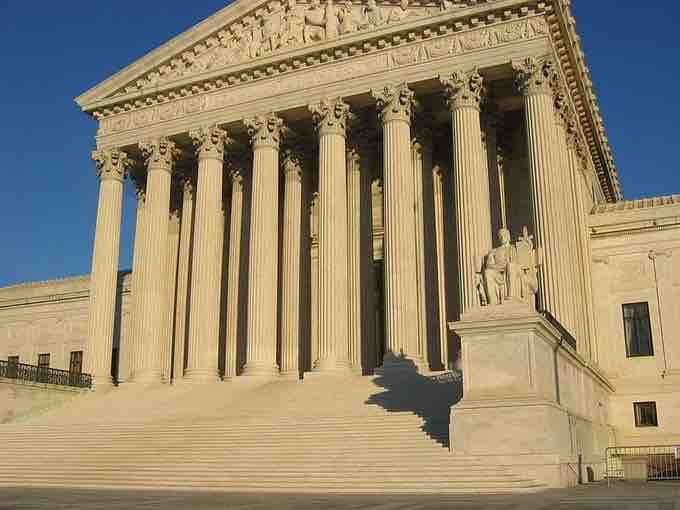Introduction
To prevent one branch of government from becoming too powerful, protect the minority from the majority, and induce the branches to cooperate, governments often employ a system of "checks and balances. " Like the concept of separation of powers, this idea is credited to Montesquieu. Through this system, each branch of government "checks," or limits, the other two so that the power shared between them is balanced. An example of this is the president's veto power: the president can limit Congress's power by vetoing a bill. However, the legislative branch can overturn this veto with a two-thirds majority in both of the houses, thus maintaining the balance.
Legislative
The legislative branch of the United States checks and monitors the executive and judicial branches. The legislative passes bills, has broad taxing and spending power, controls the federal budget, and has power to borrow money on the credit of the United States. It has sole power to declare war, as well as to raise, support, and regulate the military. Further, the legislative branch is responsible for the ratification of treaties signed by the President and gives advice and consent to presidential appointments to the federal judiciary, federal executive departments, and other posts (Senate only). Lastly, the legislative has sole power of impeachment (House of Representatives) and trial of impeachments (Senate); it can also remove federal executive and judicial officers from office for high crimes and misdemeanors.
Executive
The President exercises a check over Congress through his power to veto bills, but Congress may override any veto by a two-thirds majority in each house. When the two houses of Congress cannot agree on a date for adjournment, the president may settle the dispute. Either house or both houses may be called into emergency session by the president. The Vice President serves as president of the Senate, but he may only vote to break a tie.
The president, as noted above, appoints judges with the Senate's advice and consent. He also has the power to issue pardons and reprieves. Such pardons are not subject to confirmation by either the House of Representatives or the Senate, or even to acceptance by the recipient. Many pardons have been controversial. Critics argue that pardons have been used more often for the sake of political expediency than to correct judicial error. One of the more famous recent pardons was granted by President Gerald Ford to former President Richard Nixon on September 8, 1974, for official misconduct that gave rise to the Watergate scandal . Polls showed a majority of Americans disapproved of the pardon, and Ford's public-approval ratings tumbled afterward.
The President is the civilian Commander in Chief of the Army and Navy of the United States. It is generally understood that he has the authority to command them to take appropriate military action in the event of a sudden crisis. However, only the Congress is explicitly granted the power to declare war, as well as to raise, fund, and maintain the armed forces. Congress also has the duty and authority to prescribe the laws and regulations under which the armed forces operate, such as the Uniform Code of Military Justice, and requires that all Generals and Admirals appointed by the president be confirmed by a majority vote of the Senate before they can assume their office.
Judiciary
Courts check both the executive branch and the legislative branch through judicial review. This concept is not written into the Constitution, but was envisioned by many of the Constitution's Framers. Judicial review in the United States refers to the power of a court to review the constitutionality of a statute or treaty, or to review an administrative regulation for consistency with either a statute, a treaty, or the Constitution itself. The Supreme Court's landmark decision on the issue of judicial review was Marbury v. Madison (1803, ), in which the Supreme Court ruled that the federal courts have the duty to review the constitutionality of acts of Congress and to declare them void when they are contrary to the Constitution. Marbury, written by Chief Justice John Marshall, was the first Supreme Court case to strike down an act of Congress as unconstitutional. Since that time, the federal courts have exercised the power of judicial review.

Supreme Court
The Supreme Court holds the power to overturn laws and executive actions they deem unlawful or unconstitutional.
The judiciary also has involvement in the impeachment process of a president. The Chief Justice presides in the Senate during a president's impeachment trial. The rules of the Senate, however, generally do not grant much authority to the presiding officer. Thus, the Chief Justice's role in this regard is limited.